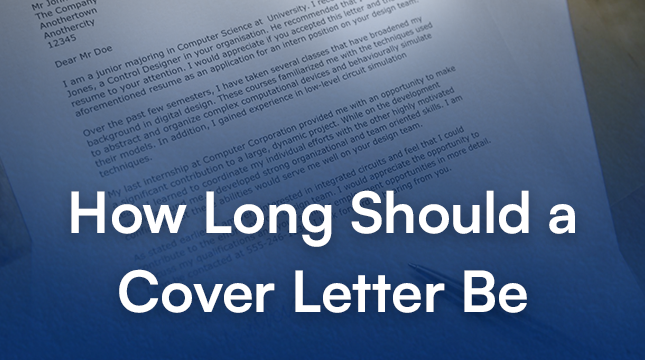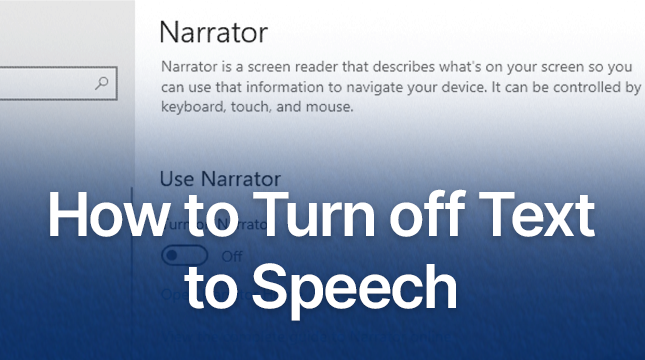This website uses cookies so that we can provide you with the best user experience possible. Cookie information is stored in your browser and performs functions such as recognising you when you return to our website and helping our team to understand which sections of the website you find most interesting and useful.
how long should a cover letter be

In today’s fast-paced job market, where applications can reach dizzying heights, crafting a compelling cover letter feels more crucial than ever. But with hiring managers sifting through mountains of resumes, how long should your cover letter be to grab their attention and land you that coveted interview?
The answer, like most things in life, isn’t a one-size-fits-all situation. However, fear not, fellow job seeker! This guide will equip you with the knowledge to create a cover letter that’s both concise and impactful, maximizing your chances of landing your dream job.
The Power of the Cover Letter
Let’s dispel a myth: cover letters are far from relics of the past. In a digital age overflowing with resumes, a well-crafted cover letter acts as your personal elevator pitch. It’s your chance to introduce yourself, showcase your skills beyond the bullet points, and convince the hiring manager you’re the perfect fit for the role.
Why Cover Letters Still Matter in Today’s Job Market
A strong cover letter personalizes your application, demonstrating genuine interest in the specific position and company. It allows you to elaborate on your experiences and achievements, providing context and depth beyond the confines of a resume.
Standing Out from the Crowd: The Cover Letter’s Role
Imagine a hiring manager sorting through hundreds of resumes, all boasting similar qualifications. A well-written cover letter can be your secret weapon, separating you from the pack and propelling you to the top of the interview pile.
Finding the Sweet Spot: Ideal Cover Letter Length
Now, let’s delve into the nitty-gritty: how long should your cover letter be? The magic formula lies somewhere between 250 and 400 words, translating to roughly a half-page to a full page. This sweet spot ensures you capture the reader’s attention without overwhelming them with an essay.
Keeping it Concise: Benefits of a Shorter Cover Letter
A concise cover letter is all about efficiency. Recruiters are busy people, so getting straight to the point demonstrates respect for their time. A shorter letter is easier to scan and digest, increasing the likelihood of your key points being noticed.
Avoiding the TL;DR Abyss: The Case for Substance
However, brevity shouldn’t come at the expense of substance. While you want to be concise, ensure your cover letter packs a punch. Focus on highlighting your most relevant skills and experiences, tailored to the specific job requirements.
Crafting Your Content: What Goes into a Great Cover Letter?
So, what should your cover letter actually contain? Here’s a roadmap to guide you:
Show, Don’t Tell: Highlighting Relevant Skills and Experience
This is where you shine. Don’t simply list your skills; demonstrate their impact. Use specific examples from your past projects or experiences that showcase how you’ve applied your skills to achieve tangible results. Numbers and metrics are your friends here! Quantify your achievements whenever possible to add weight to your claims.
Tailoring Makes the Difference: Aligning Your Cover Letter with the Job Description
Remember, your cover letter isn’t a generic document you blast out for every opportunity. Take the time to tailor each letter to the specific job description. Carefully analyze the requirements and highlight the skills and experiences that directly align with the position. This demonstrates you’ve done your research and are genuinely interested in the role.
The Magic of Storytelling: Using Achievements to Showcase Value
People connect with stories. Don’t just list accomplishments; weave them into a compelling narrative that showcases your problem-solving abilities, initiative, and value as an employee. Describe a challenging situation you faced, the actions you took, and the positive outcome you achieved. This approach brings your skills and experiences to life, making a lasting impression on the reader.
Formatting for Readability: Making Your Cover Letter Shine
Content is king, but presentation matters too. Here’s how to format your cover letter for maximum impact:
Visual Appeal: Choosing the Right Font and Style
Opt for a professional and easy-to-read font like Arial or Times New Roman. Avoid overly decorative fonts that might distract from the content. Keep the font size between 10-12 points for optimal readability.
Structure and Flow: Guiding the Reader’s Eye
Structure your cover letter with clear sections, using bullet points or short paragraphs for improved readability. Maintain consistent spacing and margins to create a visually appealing document.
Proofreading is Key: Eliminating Typos and Errors
Typos and grammatical errors scream unprofessionalism. Proofread your cover letter meticulously before submitting it. Consider having a friend or colleague review it for an extra set of eyes.
Special Considerations: Adapting Your Cover Letter Length
While the 250-400 word range is ideal for most situations, there can be exceptions:
Entry-Level vs. Experienced Professionals: Tailoring Length to Your Career Stage
Entry-level applicants might find a slightly shorter cover letter (around 250 words) sufficient, focusing on highlighting their educational background, relevant coursework, and transferable skills.
For seasoned professionals with extensive experience, a cover letter closer to the 400-word mark might be appropriate. This allows them to showcase a broader range of skills and accomplishments.
The key is to ensure your cover letter effectively conveys your value proposition without exceeding the reader’s patience.
Industry Variations: Considering Industry Standards
Certain industries might have unspoken norms regarding cover letter length. For instance, creative fields like advertising or design might favor a slightly more visually engaging and potentially longer cover letter to showcase your creative flair.
Do some research on the specific industry you’re targeting to see if there are any unwritten rules about cover letter length and format.
Conclusion: The Perfect Cover Letter – It’s All About You
The perfect cover letter isn’t a rigid formula; it’s a compelling story about you and your value proposition. It’s about showcasing your skills, experience, and enthusiasm for the specific opportunity. Remember:
Final Thoughts: Confidence and Conciseness are Key
Project confidence and enthusiasm in your writing style. Proofread meticulously, and keep your cover letter concise and impactful. By following these steps, you’ll craft a cover letter that grabs attention, lands you that interview, and helps you land your dream job.

Let's Start Your Project
Get free consultation for your digital product idea to turn it into reality!
Get Started






